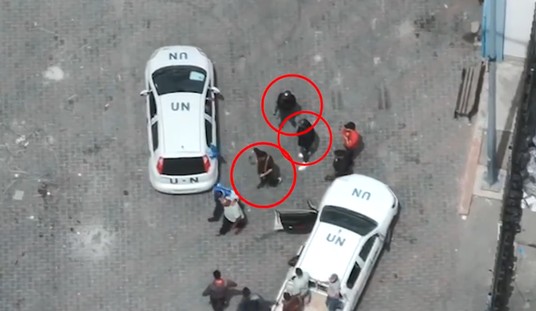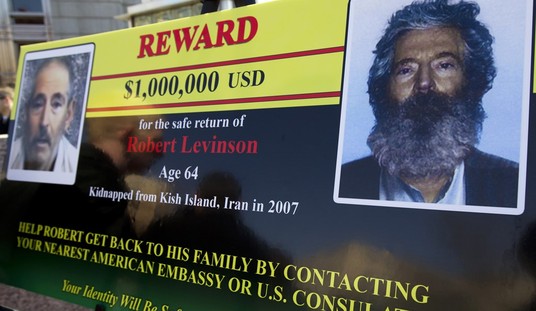There’s a good reason people are growing nervous about the huge amount of information our government is amassing on its citizens. The strange story of John Filippidis should put a chill in the hearts of everyone concerned about protecting their Constitutional rights, especially their gun rights.
Filippidis is a Floridian with a concealed-carry permit, who drove to visit family in New Jersey over the Christmas holiday. He decided not to push his luck by bringing his legal pistol with him on the interstate drive. But while passing through Maryland on the way home on New Years Eve with his wife and kids in the car, he somehow caught the attention of an unmarked Maryland Transportation Authority Police car, which played a bizarre game of cat-and-mouse with them for a while before popping on its lights and pulling them over.
I have yet to read a story about why, exactly, the officer decided to initiate an encounter with the Filippidis family; the MTAP is supposedly conducting an internal investigation and won’t answer such questions until it’s over, although they have apologized to the Filippidis family for what happened next.
From the Tampa Tribune, we learn that it took about ten minutes for the officer to check Filippidis’ license and registration, and then…
Ten minutes later he’s back, and he wants John out of the Expedition. Retreating to the space between the SUV and the unmarked car, the officer orders John to hook his thumbs behind his back and spread his feet. “You own a gun,” the officer says. “Where is it?”
“At home in my safe,” John answers.
“Don’t move,” says the officer.
Now he’s at the passenger’s window. “Your husband owns a gun,” he says. “Where is it?”
First Kally says, “I don’t know.” Retelling it later she says, “And that’s all I should have said.” Instead, attempting to be helpful, she added, “Maybe in the glove [box]. Maybe in the console. I’m scared of it. I don’t want to have anything to do with it. I might shoot right through my foot.”
The officer came back to John. “You’re a liar. You’re lying to me. Your family says you have it. Where is the gun? Tell me where it is and we can resolve this right now.”
Of course, John couldn’t show him what didn’t exist, but Kally’s failure to corroborate John’s account, the officer would tell them later, was the probable cause that allowed him to summon backup — three marked cars joined the lineup along the I-95 shoulder — and empty the Expedition of riders, luggage, Christmas gifts, laundry bags; to pat down Kally and Yianni; to explore the engine compartment and probe inside door panels; and to separate and isolate the Filippidises in the back seats of the patrol cars.
Ninety minutes later, or maybe it was two hours — “It felt like forever,” Kally says — no weapon found and their possessions repacked, the episode ended … with the officer writing out a warning.
“A warning for what?” every reader is doubtless asking in unison, but I haven’t found that detail in any media account. Most of them appear to be built entirely from the Tampa Tribune article. The nature of the warning seems like a detail the reporter should have nailed down. (If everyone involved either refused to disclose the nature of the warning, or was legally barred from doing so, that could have been duly noted in the story.) If I don’t see some “WARNING – Do not visit the Peoples’ Republic of Maryland if you value your rights!” Photoshops at the next gun show I visit, I will be very disappointed.
It seems almost incredible that some sort of minor infraction would not be cited by the officer as the reason for the stop, but even with an internal investigation under way, it’s strange that they haven’t made some effort to explain that Filippidas was driving slightly over the speed limit, drove erratically because he was tired, had a tail light out, etc. As it stands, the conduct of the officers in this case appears either incomprehensible or downright sinister.
According to the Tampa Tribune, Mr. Filippidas was badly shaken by the incident, and is on the verge of canceling his concealed-carry license to avoid further difficulties, which would be a textbook nightmare scenario of a citizen intimidated out of exercising his lawful rights:
“All that time, he’s humiliating me in front of my family, making me feel like a criminal,” John says. “I’ve never been to prison, never declared bankruptcy, I pay my taxes, support my 20 employees’ families; I’ve never been in any kind of trouble.”
Face red, eyes shining, John pounds his knees. “And he wants to put me in jail. He wants to put me in jail. For no reason. He wants to take my wife and children away and put me in jail. In America, how does such a thing happen? … And after all that, he didn’t even write me a ticket.”
The National Rifle Association reviewed the gun laws of Florida and Maryland in a statement on the case:
Florida’s concealed carry law states: “The Department of Agriculture and Consumer Services shall maintain an automated listing of licenseholders and pertinent information, and such information shall be available online, upon request, at all times to all law enforcement agencies through the Florida Crime Information Center.” Maryland also has very strict laws governing the carrying or transportation of firearms, rarely issues concealed carry licenses under its discretionary “need-based” licensing regime, and does not recognize any out-of-state carry licenses. It has also aggressively pursued gun control recently, resulting in a sweeping law that includes gun bans, licensing, and registration. This, in turn, has sparked multiple lawsuits, some of which have already been settled (see ILA’s January 2014 Legal Update for more information).
How these factors may have interacted in this incident is unclear, but at the very least, the Tribune’s report raises serious questions about how records indicating a person is a gun owner might lead to unwarranted suspicion and discrimination, even in the absence of wrongdoing.
And here I thought “profiling” was the worst thing law enforcement could do. (I wonder if Mr. Filippidas have any bumper stickers on his car advertising his gun ownership.) At any rate, “the absence of wrongdoing” is an increasingly precious commodity in a hyper-regulated nation where everyone is presumably guilty of some infraction or other at any given moment.













Join the conversation as a VIP Member